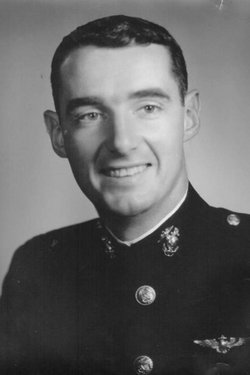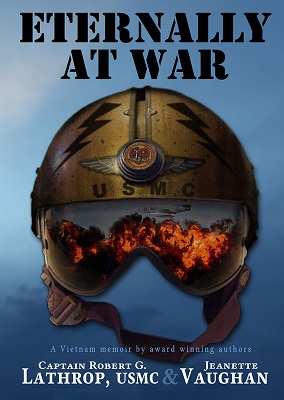Four decades after the Vietnam War, many veterans are still questioning why me? Some still suffer form post-traumatic stress disorder, or PTSD. For many honorable service men and women, it is a condition that just won’t go away. According to one veteran, “we all came back with some form of PTSD, some were just more affected than others.”
As a trauma nurse, I have seen this over and over in my patients. As a writer, I have heard this over and over from my military colleagues, whether they were in the air or on the ground. This issue was called shell shock in WWII. It was worse after Korea and continued it’s increase post-Vietnam. And now is horrific according the number of cases from our Iraq and Afghanistan vets. In fact, the type of PTSD being seen in many of our current combat veterans is so bad, it is called moral bankruptcy. Our military are being asked to do and see such horrific things, going against the very fiber of their being for what they know to be just and right, the consequences are catastrophic.
Captain Robert “Gene” Lathrop was a USMC pilot who believes he went to Vietnam with a form of PTSD. He arrived there in 1968, interestingly enough, during the TET offensive. During fifteen months, he flew over 275 missions. While in Vietnam, his squadron VMA-311 flew 54,625 sorties dropping over 9 million tons of bombs. That record will never be broken.

Captain Robert “Gene” Lathrop, USMC
Lathrop returned seemingly unscathed until ten years after the fact. That delay in the onset of PTSD is common in vets. What started as nightmares and cold sweats, quickly progressed to anxiety and hallucinations involving the flames of napalm. Desperate to hold onto his second marriage, he and his wife initially sought counseling. Luckily, a female psychotherapist up on the latest research broached the touchy subject – she suggested that Gene was suffering from post-traumatic stress disorder. Initially he balked at the thought of treatment. But further conflict with family and an incident as work provocated his admission for in-patient treatment at American Lakes VA center.
During the 1980s, therapist and psychologists were treating the disorder the best way they knew how. Oftentimes opening up a damn of emotion which release a hurricane of feelings for which the patient was not prepared. Sessions were intense with profound rage, grief, tears, and sorrow as veterans were encouraged to bring out long repressed memories. When the emotions became unmanageable, the answer was medication. Heavy sedatives, anti-psychotics, and anti-anxiety drugs were the fixers. Or so they thought.
Through the love and support of his wife, Gene endured this therapy, its aftermath, and finally experienced an evolved standard of care for those with PTSD. In the research for the completion of his memoir ETERNALLY AT WAR, I came across many veterans who told a similar story. Much of this material came from the Vietnam Center and Archive at Texas Tech University, the largest national repository of oral histories, photography, film and literature that has been converted by the graduate students into digital format such that the memories of those involved in Vietnam, from doughnut dollies to pilots can be preserved.
According to Dr. Richard Verrone, previous Director of the Oral History Project, “The archive is invaluable for many reasons but especially for preserving the history of the Vietnam War and, in the process of doing so, honoring those who served. We tried to make sure our work was thorough, accurate, personal, and beneficial to future researchers. And, of course, our work was a way to honor those people we interviewed. It was incredibly rewarding to me to be able to help veterans with their PTSD issues as we did the interviews, if that was a possibility. I certainly made the effort to broach the subject if they were willing, and I wanted to get it out there, to remove any layers that were there, to help those who would research in the interviews better understand this terrible condition. As an instructor here at Texas Tech in the Department of History, I have had in my classes over the years many veterans of the Iraq and Afghanistan wars. Their PTSD issues mirror almost exactly those in the Vietnam interviews.”
Some veterans had coped by simply forgetting the past and moving on. Even talking about the war, brought heavy emotions back to the surface. Many of those interviewed for my research could not complete the process. Although some veterans find comfort in hanging out with their peers in the form of reunions or gatherings at a local VFW, Lathrop found comfort in dealing with the aftermath of Vietnam through the written word. His powerful and frank poetry in THE DARK SIDE OF HEAVEN and now his brutally honest memoir are a brilliant window into the atrocities of a controversial war and the survival of its aftermath. He believed that society has a responsibility to care for all veterans when they return to peacetime and aid them to recovery after their sacrifices. “We owe it to the Vietnam generation, it’s an amazing sacrifice that they made. But it’s also the path ahead for the Iraq and Afghanistan generation. We have to do better than we did for Vietnam,” according to Dr. Charles Marmar, Director of The Steven & Alexandra Cohen Veterans Center at NYU Langone Medical Center. AgeView Press agrees and therefore is honored to produce Lathrop’s works.

[…] Source: You survived Vietnam, but what about its aftermath? […]